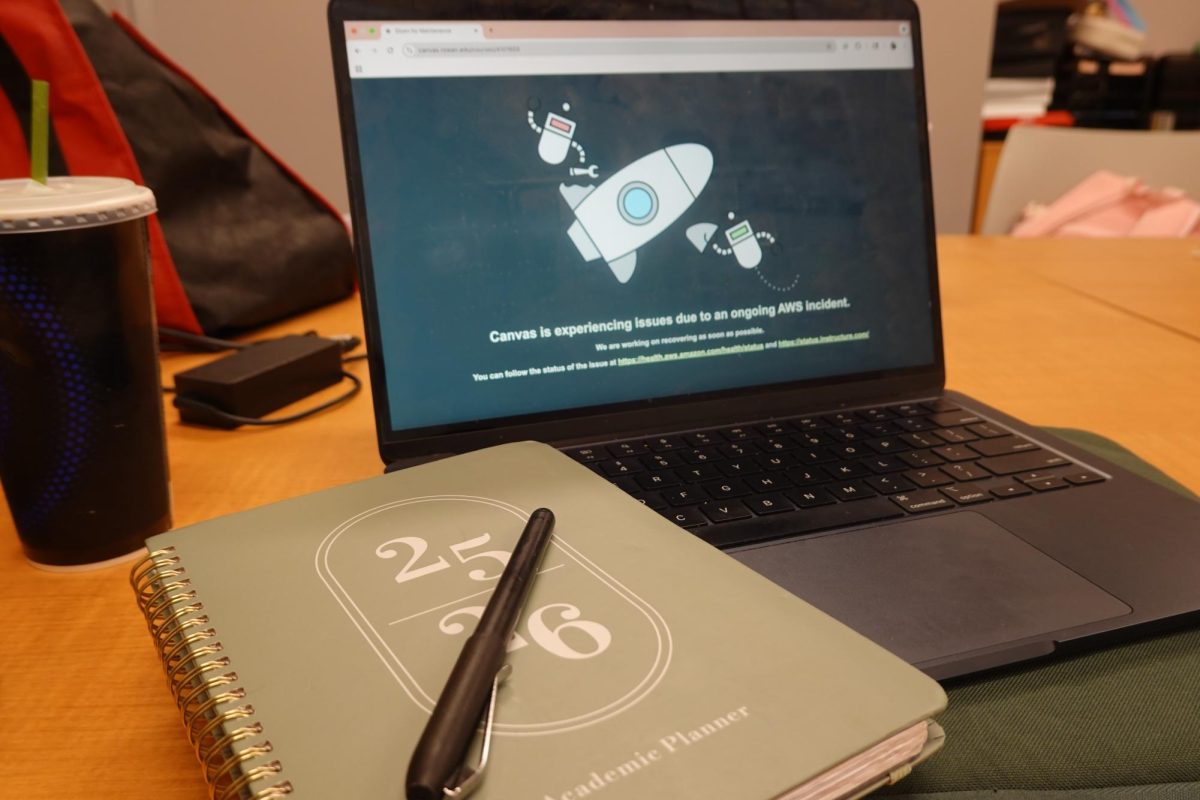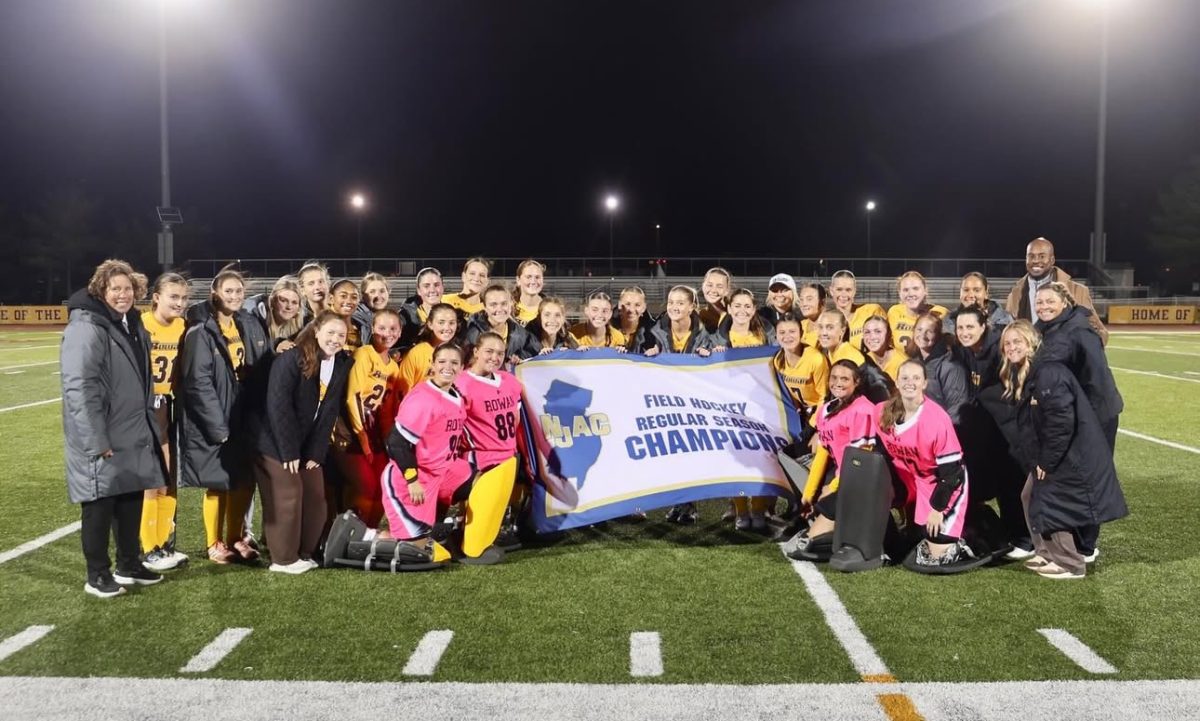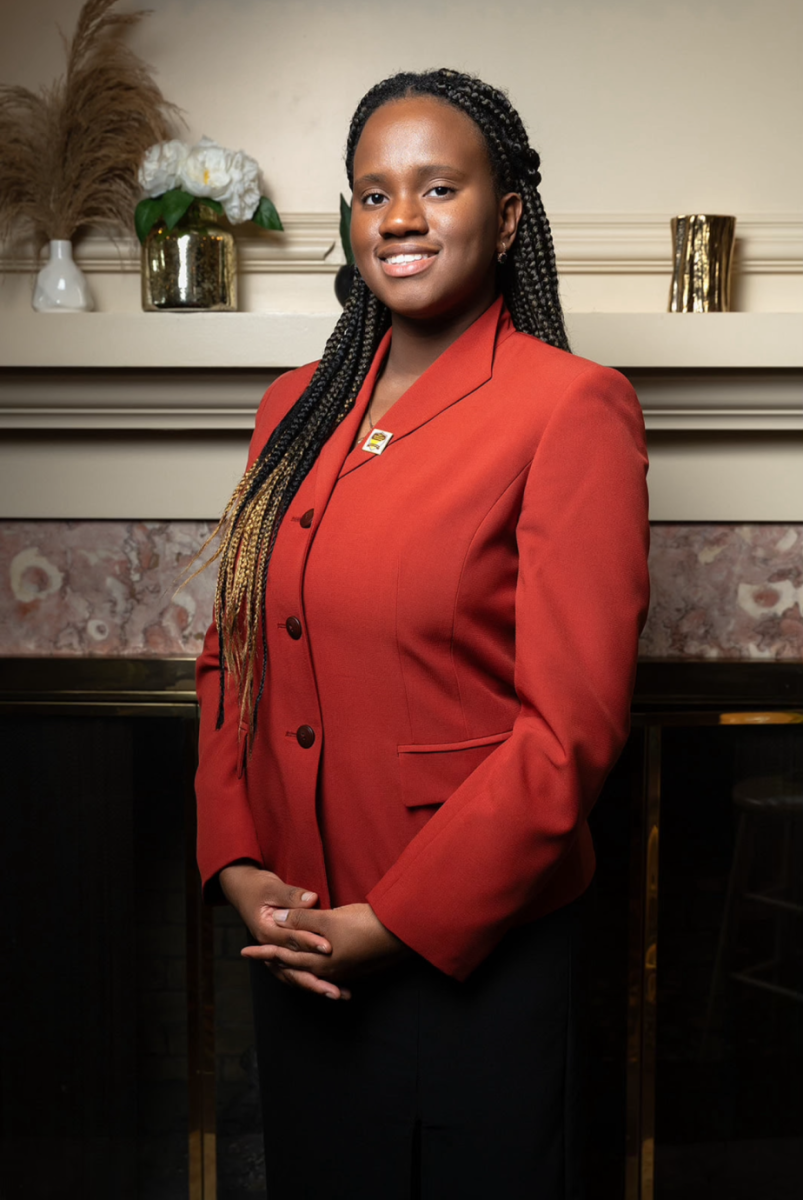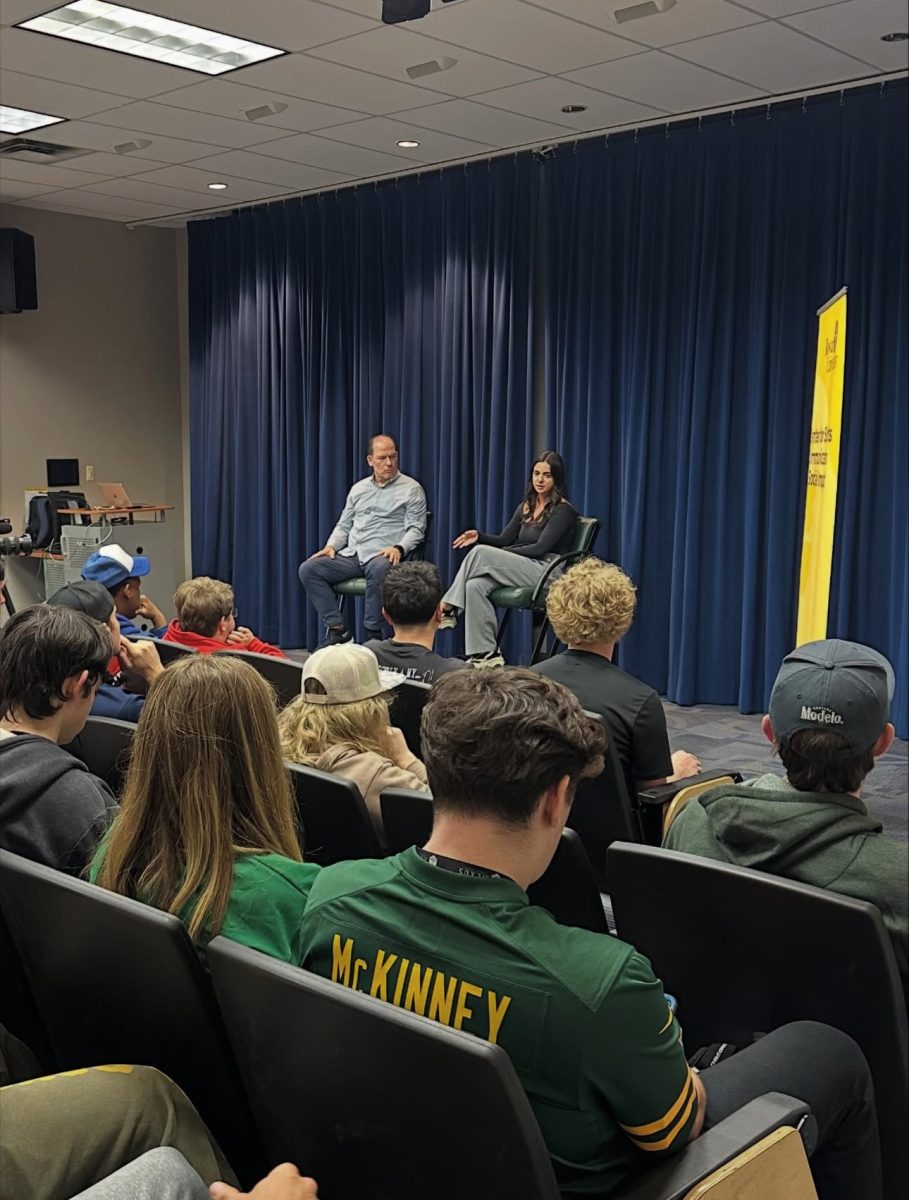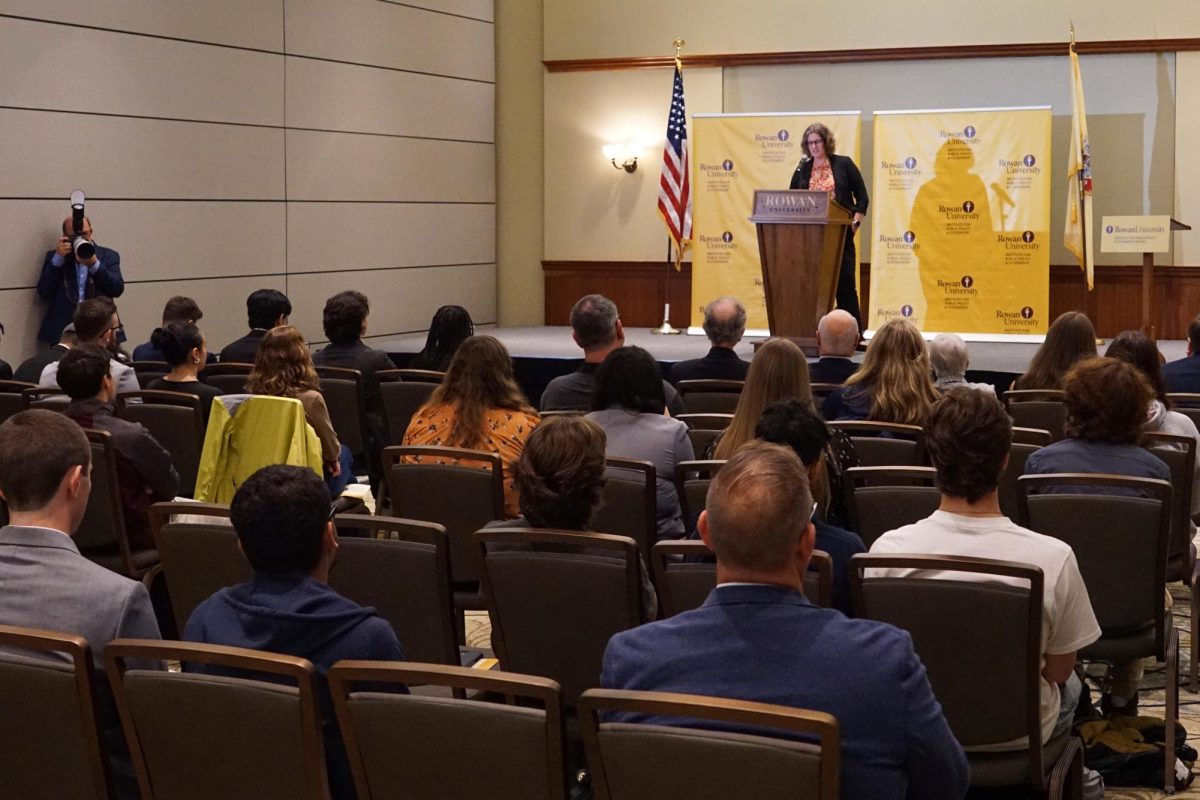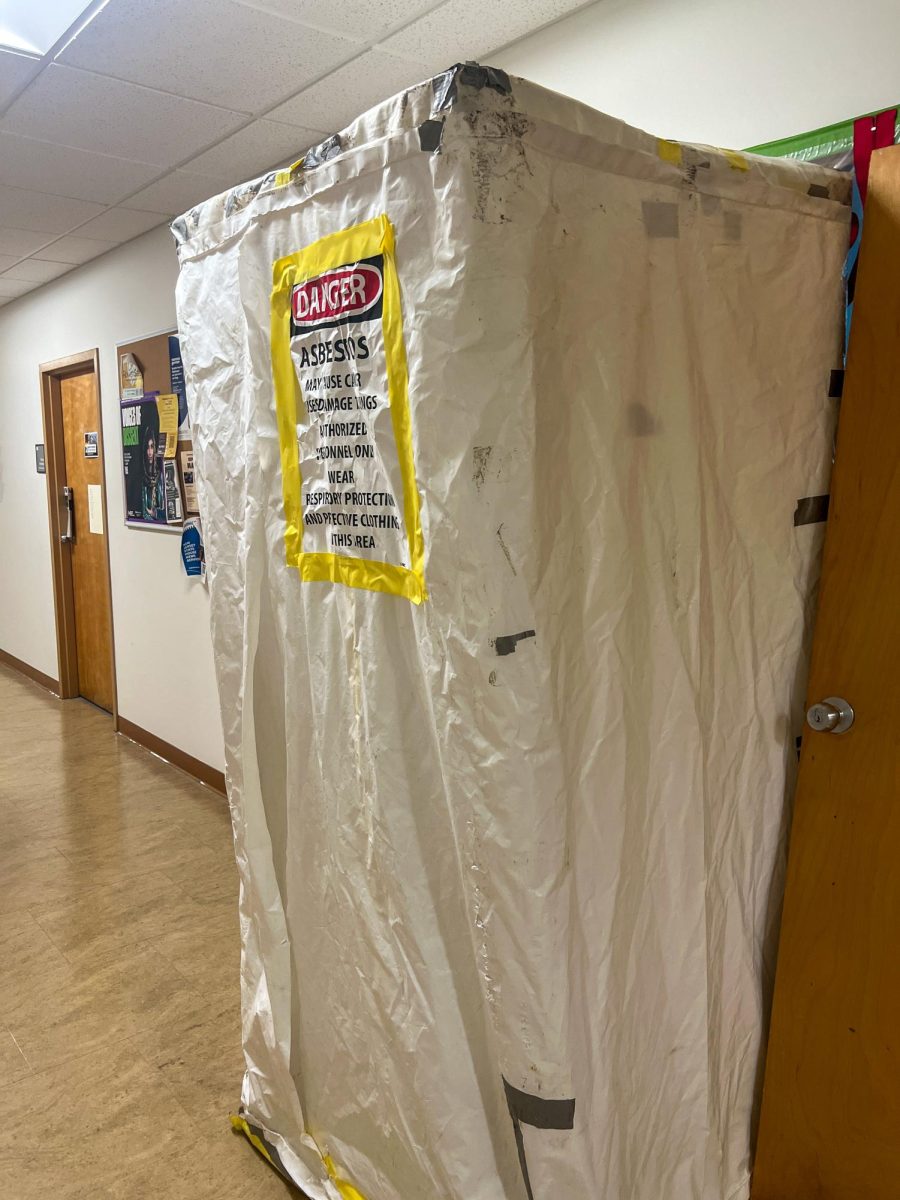As the peak of election season draws nearer, all eyes are turning to candidates and their campaigns as they vie to win political office.
But, in a political climate where concerns over campaign misconduct run rampant, how are candidates, and the way their campaigns are financed, kept in check?
On Sept. 25, Amanda Haines, the executive director of the New Jersey Election Law Enforcement Commission (ELEC, for short), spoke on this very topic as she made a visit to Rowan.
Hosted by the Rowan Institute of Public Policy and Citizenship (RIPPAC) as an installment in their Speaker Series, Haines addressed Rowan students on a broad range of topics related to campaign finance in the Chamberlain Student Center’s Eynon Ballroom.
RIPPAC member Luke Reed described RIPPAC as a “club without club meetings,” praising it as an opportunity to build connections with other students with politics in mind, and with figures currently working in the realm of politics. He mentioned that the Speaker Series events hosted by RIPPAC, which invite figures like Amanda Haines to address Rowan students, as particularly helpful.
“I would have no way to gain those connections without RIPPAC,” Reed said.
From large-scale campaigns run by candidates for governor, all the way down to local elections, ELEC oversees the flow of money in all campaigns across the state. Additionally, the commission also oversees and monitors lobbyists, and how they use money in the state of New Jersey.
Haines began her speech by giving a brief history of the commission. In the wake of revelations of President Nixon’s misconduct in the Watergate scandal, voters, in New Jersey and across the country, grew cynical about the political system. With the president himself embroiled in scandal, it seemed to many that the government was hopelessly corrupt, and not an institution the people should have much faith in.
To remedy this issue and to restore voter confidence in the electoral system, the state of New Jersey founded ELEC, as a means to oversee how money is donated, collected, and spent in political campaigns. Haines emphasized off the bat that “ELEC is a non-partisan entity.”
This ideal is baked into the structure of the commission itself. To avoid a single political party dominating the commission, ELEC only allows two out of four of its commissioners to be affiliated with a single political party. That way, one party may never come to dominate ELEC, and therefore, the commission’s non-partisan mission remains intact.
Additionally, ELEC was designed with compromise in mind. By setting their number of commissioners at four- instead of an odd number, which is usually the number used in any kind of governmental group to ensure no ties are reached whenever a decision is voted on, the commissioners are forced to always come to a compromise on any given decision, rather than rely on a majority ruling to guide their decisions.
After touching on the history and structure of the commission, Haines went on to speak about how they regulated campaign finance.
“Individuals are allowed to donate to support a political campaign if they so choose,” said Haines.
However, unscrupulous actors too often attempt to circumvent regulations on this process, whether it be contributors themselves seeking to support their candidate by any means necessary, or by campaigns trying to get a leg up. ELEC focuses on holding campaigns to a high standard of financial integrity by ensuring that the reporting of all of their finances, donations, and expenditures is in step with all laws and regulations surrounding political campaigns. And of course, in the event that something is amiss in this process, it is ELEC’s duty to step in and investigate the finances of those in question.
Haines went on to discuss many of the intricacies of how the commission runs, from contribution ceilings and how they impact political campaigns (and the fallout of last year’s rise in acceptable campaign contribution limits), to how ELEC oversees public funding of gubernatorial campaigns.
To ensure that candidates who may not have terribly deep pockets have just as good of a shot of winning the governor’s office as better-funded candidates, New Jersey matches funds raised for political campaigns with public contributions to campaigns, a process overseen by ELEC. By lessening money’s importance in the gubernatorial race, the program levels the playing field for candidates, and, with the commission’s oversight, allows for a fairer and more honest race for all.
By ensuring politicians are kept in line with how they manage their money, ELEC ensures the integrity of our political system. Whether it be by keeping politicians in check on how they collect and spend funds, helping to maintain a fair field for all candidates in elections, or even overseeing the activities of lobbyists, which Haines only briefly touched on, the commission works to maintain a high standard of financial integrity in politics across New Jersey.
A South Jersey native, Haines is thrilled to be able to serve her democracy, and the people of her state, in her position. Originally obtaining her bachelor’s degree in sociology from Princeton University, Haines went on to graduate from law school at Temple University.
Though she never attended herself, Haines expressed a soft spot for Rowan, saying she had “a special place in her heart” for the institution, of which her mother is an alumna.
The speaker also offered advice to students considering pursuing their own careers in the legal field.
“Concentrate on writing – writing is the key to communicating, and every lawyer needs to be a good communicator, and improving your writing skills now can go a long way in your future,” said Haines.
Finally, Haines spoke to Rowan students as young voters, just beginning to make their way in the world of civic engagement. With the ever-changing nature of politics being how it is, Haines advised young voters to “be curious, ask questions, and to confirm facts.”
“Facts and opinions may work the same,” she warned, “but you have to take it upon yourself to do your research, and stay informed the best you can.”
For questions/comments/concerns, DM us on Instagram @thewhitatrowan, or email us at [email protected]




